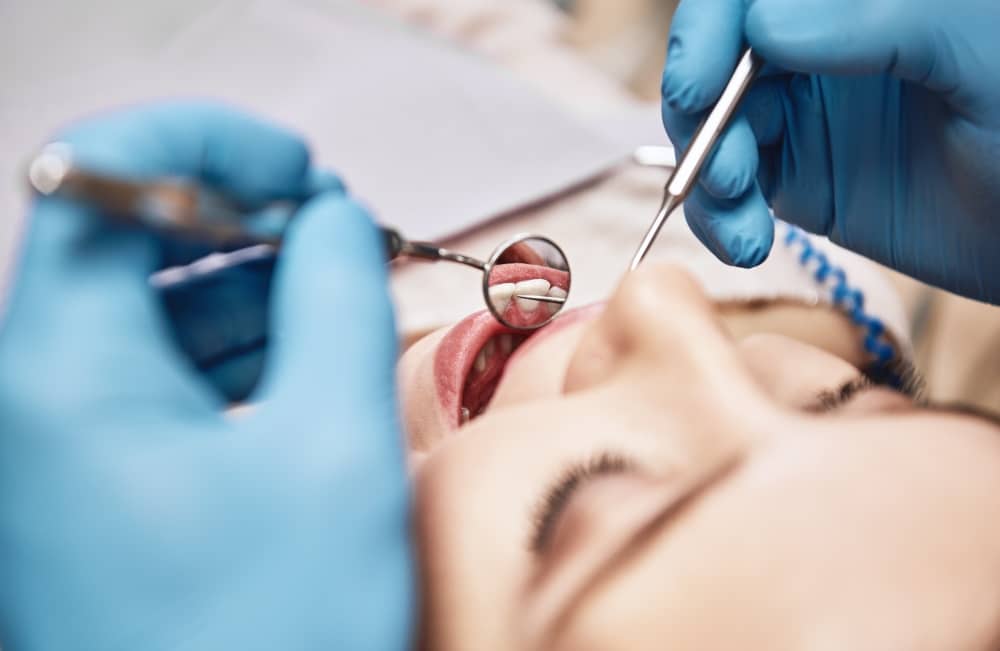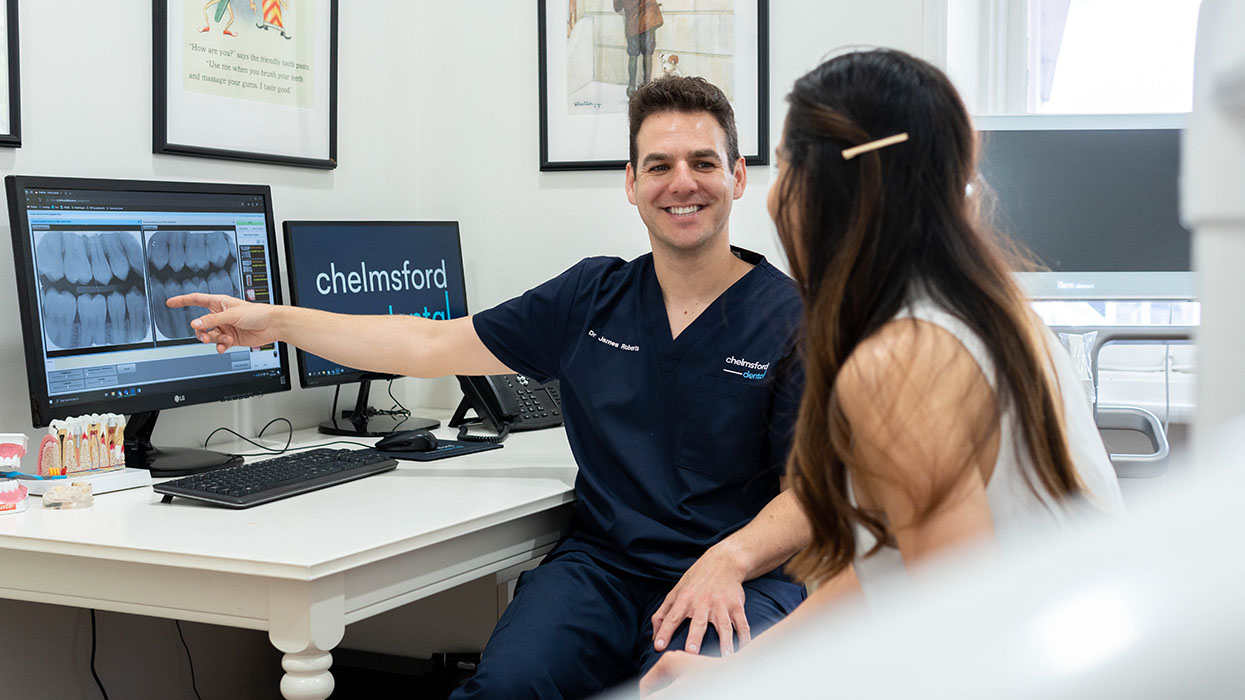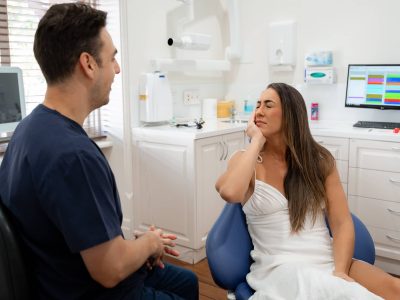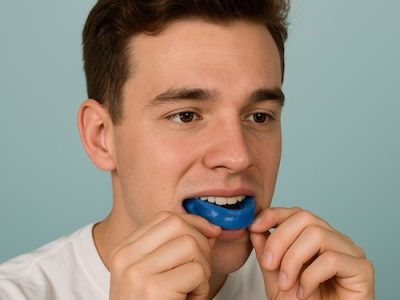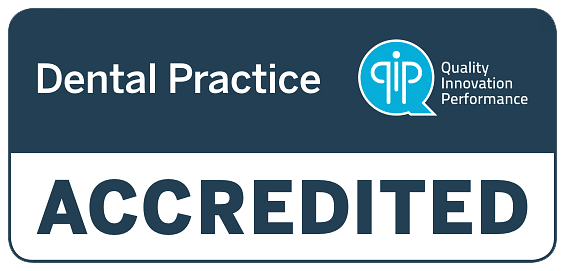We Can Help!
Dental emergencies occur more often than most people realize. As with a health emergency, immediate treatment for a dental emergency can get you relief and help prevent serious complications.
In this article, we’ll explain:
- The Importance of Contacting an Emergency Dentist if You Are Experiencing Severe Pain or a Mouth Injury
- How Do I Know if I Need an Emergency Dentist?
- What to Do During a Dental Emergency
- Tips on Preventing Dental Emergencies
- How Do I Find an Emergency Dentist Near Me?
- What Happens if I Ignore a Dental Emergency?
- What Should I Do With a Knocked-out Tooth?
The Importance of Emergency Dentists
Emergency dental care typically involves treatment for urgent dental concerns, such as mouth injuries, knocked-out teeth, severe pain or infection, or tooth breakage.
With dental emergencies, time is extremely important. The more time that passes, the higher the risk of serious complications. For major injuries, fast treatment can be the difference between losing a tooth and saving it.
Seeing an emergency dentist immediately after a mouth injury or in the event of another dental emergency can prevent further complications, reduce your pain, and rule out any serious problems.
Here are some of the benefits of emergency dental services:
- Effectively eliminate or manage pain
- Minimise damage to the teeth, mouth, and gums
- Reduce the chance of complications in the future
- Restore oral function and comfort
- Reduce the risk of infection
- Minimise the cost of treatment (for instance, seeing an emergency dentist right away for a knocked-out tooth may allow them to save it, saving you money on costly future procedures)
How Do I Know If I Need an Emergency Dentist?
Here are some questions that can help you decide if you need an emergency dentist:
- Are you having severe pain?
- Are any of your teeth loose?
- Did a tooth get knocked out?
- Did you get hit in the face or mouth?
- Is your mouth bleeding excessively?
- Do you have bulging or swelling in your gums?
If you answer ‘yes’ to any of these questions, contact an emergency dentist immediately for advice.
Here are examples of dental emergencies:
- A broken tooth
- A tooth with a large chip or crack
- A knocked-out tooth
- Damaged braces
- A loose adult tooth
- An ongoing, severe toothache (this could indicate nerve damage or an infection)
- Uncontrolled or excessive bleeding in the mouth
- Swelling of the jaw or mouth
- An injury to the mouth or teeth
- A missing filling
- A broken crown
- Signs of infection in the mouth
- Abscesses
When in doubt, contact a local emergency dentist and describe your issue and how you are feeling. An emergency dentist can assess the situation and advise you on the next steps.
When you call Chelmsford Dental for a dental emergency, we’ll walk you through exactly what to do and advise you on what steps to take until you can be seen.
For more info on what to do during dental emergencies, you can read my guide here: What Are Dental Emergencies?
You can also watch my video covering what dental emergencies are and why they should be treated immediately.
What to do During a Dental Emergency
If you experience a dental emergency, the first step is remaining calm. Next, call your local emergency dentist and follow their recommended steps.
You don’t want to be frantically searching “Emergency dentist near me” or “24/7 dentist near me” if you are in the middle of a dental emergency.
I always advise my patients to plan and have contact info for a reliable, trusted 24/7 dentist on hand. Keep the emergency dentist contact info in an easy-to-reach place so you don’t waste any time during a dental emergency.
In some cases, your emergency dentist may advise you to head to your hospital’s emergency department instead. This can happen if the injury is extensive.
Tips on How to Prevent Dental Emergencies
It is impossible to prevent dental emergencies entirely, but these tips can help minimise your chance of needing an emergency dentist:
- Wear a custom-made mouthguard during contact sports
- Avoid chewing on non-food objects, ice, etc.
- See your dentist regularly for general checkups (these routine dental checkups are key for keeping your teeth, mouth, and gums healthy, detecting oral health problems early, and treating issues before they can progress into a dental emergency)
- See your dentist for a checkup if you will be travelling out of the country for an extended time
- Practice a good oral hygiene routine that includes brushing twice a day with a soft-bristled toothbrush and flossing daily
- Follow your dentist’s instructions closely after any dental procedure or treatment
FAQs About Dental Emergencies
- How Do I Find an Emergency Dentist Near Me?
This can be as simple as searching phrases such as: “24/7 Dentist Near Me” or “Emergency Dentist Near Me” and researching what your local options are.
I highly recommend doing this ahead of time so that you know exactly who to call in the event of a dental emergency. If you are in the Perth area and need an emergency dentist, please contact us anytime with questions or to learn more about our emergency dental services.
- What Happens If I Ignore a Dental Emergency?
The consequences of ignoring a dental emergency can be serious, painful, and costly. Along with prolonging your pain, you also put yourself at risk of permanent damage if you wait too long to be evaluated.
If the issue worsens, you may end up needing an extraction, dental surgery, or other intervention that could have been avoided.
- What Should I Do with a Knocked-Out Tooth?
If you get a tooth knocked out, the right steps and immediate emergency treatment increase your chance of being able to save the tooth.
Here is what to do with a knocked-out tooth:
-
- Handle it carefully
- Do not touch the tooth’s root (hold it by the top/crown instead)
- Avoid rubbing away any tissue fragments
- Carefully rinse the tooth with some milk or saliva to rinse away dirt or debris
- Do not dry the tooth or use soap on it
- Gently reposition the tooth in the socket if possible and carefully hold it in place until you can see your emergency dentist
- If you cannot reposition the tooth, immerse it tooth in milk or saliva (not water) and seal it in plastic wrap to keep it moist
- Contact an emergency dentistry immediately and bring the tooth to your appointment
Chelmsford Dental Is Your Reliable Emergency Dentist in Perth
If you are experiencing a dental emergency or need help determining if you require immediate treatment or not, our caring team is here for you.
Our team will help you decide if you need to come in right away or if you can schedule a dental appointment during regular business hours. If you are dealing with a dental emergency, we can coach you through what to do until you can be evaluated.
At Chelmsford Dental we offer 24/7 Dentist Services to ensure you stay healthy, safe, and comfortable. We are open Monday to Saturday and always reserve emergency appointment times so we can accommodate our patients
Contact us with any questions or concerns through our website, by phone at (08) 6146 2555, or by email any time, day or night.

